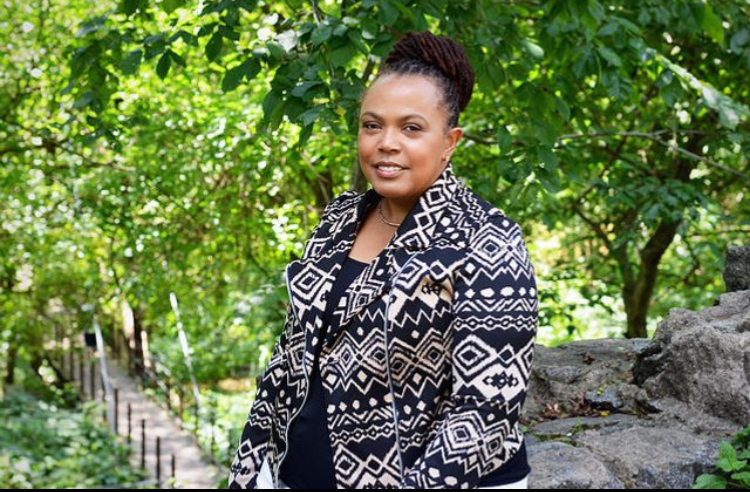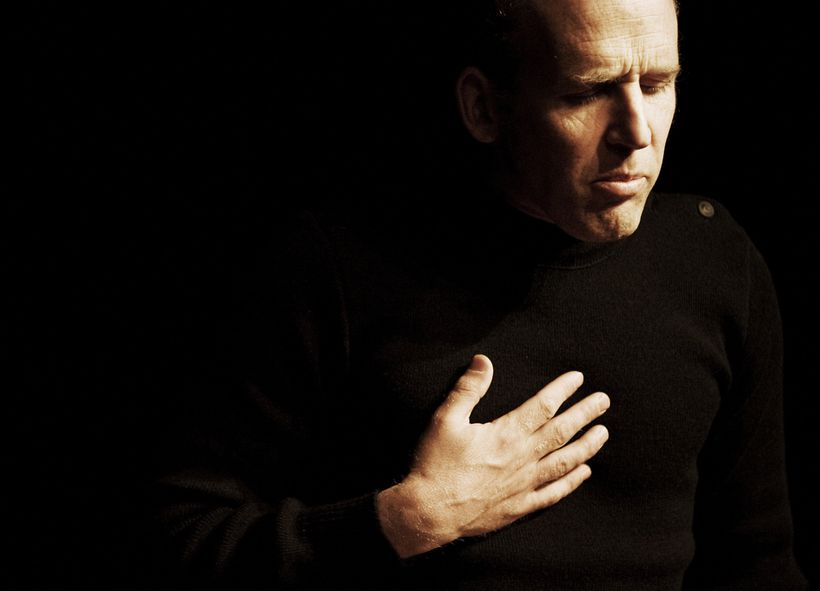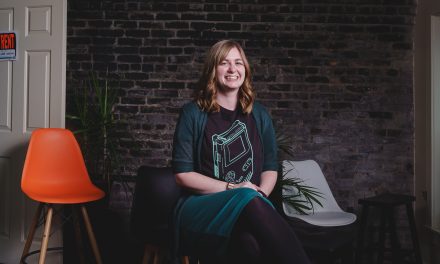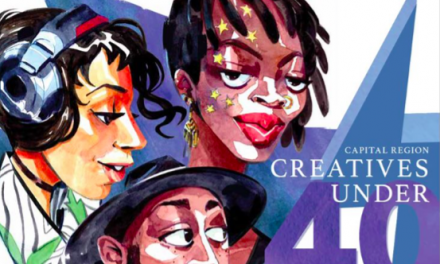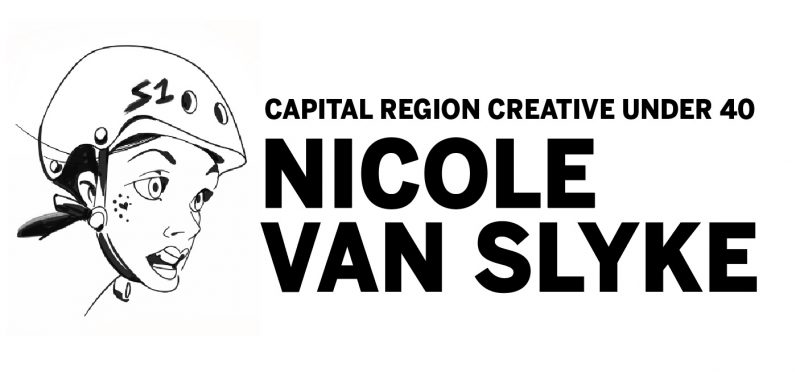Singer, actor, storyteller, educator
Current hometown: Albany
Current project: Serving as a new member of theREP’s Associate Artist program; producing theREP’s BIPOC-centric “Story Hour” series; working as a teaching artist at Arbor Hill Elementary School; developing a semi-autobiographical one-woman show she describes as a “work in progress”
Collaborative Media’s Maker of the Week is made possible by KeyBank.
Barbara Howard and I were cast together in theREP’s 2016 production of “The Trip to Bountiful,” a moving story about one woman’s desire to return to a hometown that no longer exists. Under the guidance of the theater’s artistic director, Maggie Mancinelli-Cahill, the piece was elevated to new heights through its incorporation of gospel music featuring Howard’s stellar singing voice. In addition to her work as a performing artist, Howard is an acclaimed elementary educator. She currently works as a theatre arts teacher at Brighter Choice Charter School for Boys, and regularly refers to her students as “scholars.”
When I first met you, you were working full-time as an elementary school teacher. Are you still?
Yes. When we first met, I was teaching sixth grade. Now I am teaching K-5… my position with the school is as a theater arts teacher. It’s like a special, like you would have art or P.E.
That’s great that they have something like that.
I’m pretty grateful for the forward thinking of the administration — looking at the talents and the experience that they have within their staff, to be able to capitalize on that.
What kinds of stuff do you do with your students?
It’s a full spectrum. One thing we really concentrate on is building their capacity to understand each other’s worth… making sure that we have a lot of safe space in regarding one another. Ensemble-building; building that teamwork attitude, just so that they can feel comfortable enough to be able to take those risks. The younger ones, K through second, they’re a lot freer. As they get older, developmentally… you get a little more hindered by what you think other people are thinking.
So we concentrate on that, initially, in the beginning of the year — just building up that camaraderie with one another. And then we begin to explore understanding our emotions, then going into improvisation, then some storytelling. This is Black History Month, so we’re doing a lot of choral recitation. This year, we’re hindered by COVID, so we weren’t able to do our actual winter performance or our Black History celebration performance. But the past two years we’ve done stage productions which I take from the books that they have read.
I was so excited about the one we did last year; it was called “The Black Snowman.” It was just really an empowering piece… they really take ownership of it, just understanding the teamwork and the rallying together and understanding the development of the characters. We have auditions, and we sit down and we do a real table read, and they talk about who their characters are.
So you’re really working on a play like you would on a professional level.
Exactly. And they have a stage manager, a director — so I’m there, but I’m guiding them through it… they have to get everybody settled, get everybody where they’re supposed to be. “Places!” They’re calling places. (laughs)
I wanted them to experience all the aspects of it. And one of the other staff members, our P.E. teacher, does most of our backdrops; he’s an excellent artist. The backdrops are just beautiful. We don’t have a stage per se, but we transform our gymnasium into a theater.
I love this idea of making one of the kids the director or the stage manager, because otherwise it’s like, “Oh my god, I have to do all of that.” Is that approach something you developed over time?
My first year, I don’t think I had one of the students as an assistant director… the second year, because the cast was larger, I said, “No, I’ve got to get one of the fifth graders in here,” because it’s only (grades) K-5. And their job was to make sure everybody was there, going over lines with scholars, with other actors and performers, making sure our props and everything was in place.
We had already blocked it… and I had missed something, and he said, “No, Mrs. Howard, he’s not supposed to be standing there… you said he was supposed to be over here!” (laughs) Then I knew; when they were able to do that, I was like “Yes! They are totally invested.”
And the material itself, that book: It was about two brothers and their mom, and they had fallen on hard times… it begins in Africa, where there’s this magical kente cloth that has gone down through the centuries from the griot, the storyteller… and the snowman that they build, they find the kente cloth and the kente cloth brings the snowman to life.
I always add. Either I put my own poetry, lyrical poems, in it for choral recitation so that other scholars have a part in it, or I’ll add some music to it.
Was your own work as a singer and an actress always on the side of doing this main career as a teacher? Or were you at some point pursuing that more professionally, and then you went into teaching?
Well, in college, I minored in theatre. I had an interest in performing from (when I was) a little girl. When they had Empire State Institute for Performing Arts at The Egg, I was involved in one of their summer programs… I was in high school, and they also had an internship that you could have gone to for senior year. I wasn’t able to — my parents weren’t too keen on that because I would have had to transfer to a different school for my last year, and they didn’t want me to do that. I kind of think that if I had done that, I probably would’ve majored in theatre instead of going into business. I grew up in a family-owned business; they had a family market in the South End area for over 18 years. It was something I just slipped into because that was something familiar. Had I to do it over again, I wouldn’t do that. (laughs)
So you would’ve literally had to change schools just to do the ESIPA internship?
Right, because the high school that I was in would not allow me to do the internship… they didn’t have any types of programs like that.
Oh wow.
That’s how that happened. I’ve always been interested in theatre and performing.
I went (for) business administration… after I graduated, I worked for KeyBank for a while as a branch manager.
For KeyBank, really? I’m only asking because they’re the sponsor of this Maker of the Week series.
Really! (laughs)
They used to have this management training program… I got placed at a branch; I think I was there for about a year, then I was like, “This is not really what I want to do!”
And I recorded a CD, a gospel CD. After I was done recording that, I just went into full-time traveling and singing. Various places on the East Coast I would travel, mostly different ministries, different churches… different programs for missions. I was busy doing that for a while, and then that’s when things got a little slow for me.
I got a job at the City School District of Albany… I worked there as a teaching assistant for many years, and (I was) still doing singing and traveling… but I didn’t really start acting again until I did “Raisin in the Sun” (in 2012).
You’ve only been acting for a little under 10 years?!
No, I did stuff in college, and stuff in high school. (But) if you mean the reprisal of it, yeah.
So, I did that, and then other things came along… did a couple of things at Cohoes Music Hall, did “Sound of Music” and “Ragtime.” That was a great place to work; met a lot different people there… so yeah, that’s how I got back into it!
Tell me about your decision to go Equity, with “The Trip to Bountiful.”
I had been doing a lot of community theatre. You know, you always wish for that… becoming Equity.
Maggie asked me to come and do a Next Act production… prior to that, they had their seasonal auditions, so I had gone to that. One of my friends said, “You should go, you should go.” I was like, “Yeah, I don’t think.” (laughs) I went.
I did the open call audition, and then she called me after that to do the Next Act. The play that she asked me to do in the Next Act, the staged reading, was kind of similar to (“Bountiful”) with the mother and daughter, somewhat. Sadrina (Renee, who would play Howard’s daughter in “Bountiful”) was in the same staged reading… I think (Maggie) was trying to figure out if I had the chops to do it.
There was a good response from the audience, and she asked me about “Trip to Bountiful.”
She put it out there that, in order to do the role, you would have to get your Equity card.
Yes… so I considered it, and then you know, I said, “Well, yeah. Let’s do it.”
Let’s just do it!
That was what happened! (laughs) Let’s just do this thing. So that was actually my first role in a professional theatre.
And a pretty major role, for your first time.
Yeah. Initially it was tough. It was like a bear.
I knew I could do it, but… walking through the process of it, and living through that, and the sacrifice of the time and the energy to accomplish it: You don’t know what that is until you actually do it.
It was a great learning process for me. I’m thankful for that.
You’ve been singing for quite a long time. Did you have vocal training at some point?
Well, before I wanted to act, I always sang. I was always, as a youngster, singing in the house… as my chore for washing the dishes, we used to have one of those old white double sinks. If you sang over it the right way, you could hear like an echo, you know? It was almost like good acoustics. (laughs) So whenever I was washing dishes, I was singing!
This was your initial training: washing dishes and singing.
Yeah, yeah, yeah! I would be in there… singing stuff that I’m hearing on musicals, like “The Sound of Music” and “The Wizard of Oz.” All of that stuff was in my head.
You must have gotten other training at some point!
Oh, yeah. We grew up singing in choirs at church, with professionals… and one of my early voice teachers was actually my sister. She’s one of the (choir) directors in the area.
An experience that I had in second grade was… a nun asked us to memorize a poem. I think she was giving us busywork; I think she had something she needed to do at her desk. (laughs) So anyway, we took out our readers and she told us what page it was on, and we were supposed to memorize the poem. Some of the students were just fooling around, but I was actually memorizing it. She asked us, OK, who was ready? I raised my hand and said, “I’m ready!” And then I got up, and I recited the poem, and that was like the first time I really knew that “Yeah… I like this.” It was my first memory of standing in front of an audience, and hearing my voice.
Music was always there. Music was first before acting… the Palace Theatre has done a Black History Month celebration for the last (several) years, and I’ve been involved in it in some way or another, as a coordinator or a performer. This year, of course, it’s virtual… they did a virtual taping of each performer. I did (my first) selection, “A City Called Heaven.” It’s a spiritual. And there are some times, as I perform as a singer, where you are so engulfed in… not the performance of it, but in the message of the song. And it really kind of takes you to (feeling) like you’re in it. It’s not acting of the song, it’s the presence of the song. You walk into the presence of the song… for me, that’s different from walking in the presence of a character.
It’s a different way of living in the experience, helping the audience to experience my experience.
I think you and I both believe the arts have the power to change the world. Given that, what’s a change you’d like to see?
One of the teachings that I try to do with my scholars… is for them, first of all, to be able to look at themselves and be empowered through the material that I’m presenting. And then, with that, with them being able to be empowered and their eyes opened, for them to be able to take that to the next level of changing things that our generation has messed up.
I want them to be critical thinkers. I try to help them to think about it, not so much as try to direct their thoughts on it but to realistically honor what (they’re) thinking about this. They’re gonna see it in a different way than I do. I think that’s what I try to do every day in my role as a teacher, as an educator. I believe that the arts are powerful, and they do make people think differently, to operate differently, to see themselves differently and the world differently.
I wrote this little song (for theREP’s “Story Hour” series) called “Story Time, Story Time”:
Open the door, let’s explore.
It’s story time.
You will meet new people,
you will make new friends,
you will go to many places
you’ve never, never been.
The stories have an opportunity to do that, where you have a child that’s not able — or anyone who’s not able — to travel. We can’t go anywhere now, especially — I’m not going anywhere! But through the lens of a director’s camera, and through the writing of a writer’s pen, it will take to you to those places where your mind, and their minds, can be transformed and renewed so that they can create. So that they can see and weigh this, and say for themselves, “I’d like this to go like that, and what am I gonna do about it?”
So, that’s the impact. I think I answered your question?
Find our Maker online: Website, Facebook, Instagram
Wish to nominate a Maker of the Week? Email nominations.

